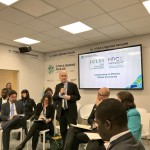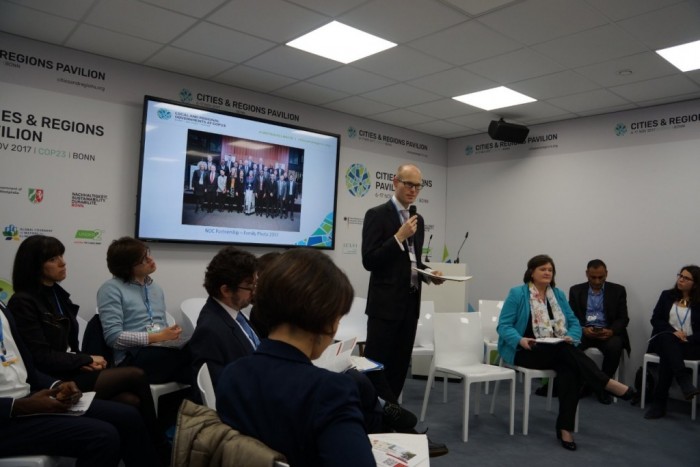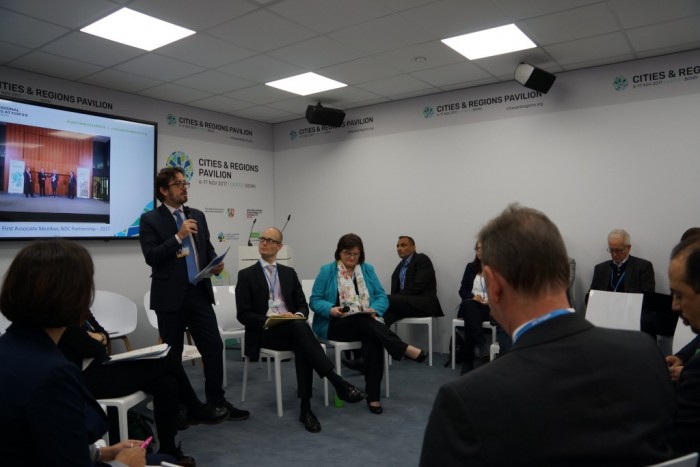 The fulfillment of the NDC needs the coordination and participation of public and private actors of distinct levels of government. In this product, GIZ, ICLEI and UN-Habitat give an overview of practical examples of multilevel climate governance with an emphasis on success factors and challenges for their implementation.
The fulfillment of the NDC needs the coordination and participation of public and private actors of distinct levels of government. In this product, GIZ, ICLEI and UN-Habitat give an overview of practical examples of multilevel climate governance with an emphasis on success factors and challenges for their implementation.
Within the framework of COP 23, the article “Enabling subnational climate action through multi-level governance” was presented, developed by GIZ, Local Governments for Sustainability (ICLEI) and UN-Habitat. The presentation took place on November 16 at the ICLEI and the NDC Partnership event – Collaborating on Effective Climate Governance by Tangmar Marmon, director of the VICLIM program.

Within the Paris Agreement, the role of subnational governments is fundamental because they are entities that are in direct contact with the sources of greenhouse gas (GHG) emissions, as well as with vulnerable zones and groups affected by climate change. Therefore, within the context of multilevel governance, it is vital to integrate them into national climate policies and enable them to contribute to the design of these policies.
This article includes the experiences of five countries in the implementation of climate governance exercises. It highlights that, to achieve the mitigation goals established in the NDC, it is necessary to create political, institutional and financial mechanisms through which subnational, as well as public, private and civil society actors can cooperate, coordinate and form alliances within countries and internationally. This will depend on the scope of the actions to be implemented and, in turn, the reduction of the gap between national commitments and the real emission reductions necessary to achieve the objectives of the Paris Agreement.

The formation and implementation of these mechanisms are presented through case studies in Colombia, Germany, South Africa, Mexico and Myanmar, which exemplify good practices and obstacles in their implementation process, to allow future projects build on these lessons learned.
The product is also available on the recently launched “Energypedia” platform, which shares collaborative knowledge on renewable energy and energy efficiency in developing countries. The Deutsche Gesellschaft für internationale Zusammenarbeit (GIZ) GmbH implements the global project VICLIM in Mexico on behalf of the German Federal Ministry for the Environment, Nature Conservation, Building and Nuclear Safety (BMUB).
Enabling_Subnational_Climate_Action_through_Multi-level_Governance.pdf
